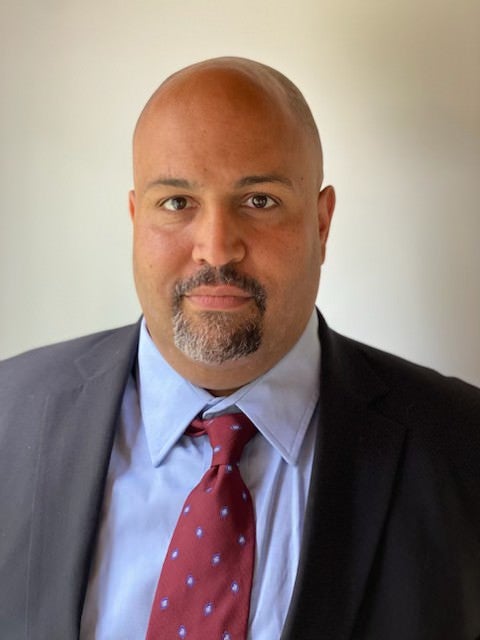Pivot Alum Elected to ACLU-D.C. Board of Directors
Posted in News
The ACLU of Washington, D.C. recently announced that Pivot graduate David Schultz (’21) was elected to serve on the organization’s Board of Directors. Schultz hopes to embrace his unique identity as a returning citizen as he advocates for other system-impacted District residents.

“As a returning citizen and graduate of the Georgetown Pivot Program, I have experienced first-hand the many challenges and barriers that individuals face within our justice system,” Schultz said. “This position with the ACLU board presents an extraordinary opportunity to channel my experiences to amplify the voices of those who have been overlooked and is a testament to the belief in second chances.”
The nationwide ACLU comprises local field offices that take action on civil rights issues, lead grassroots advocacy efforts, and shape state and local policy. This year, Schultz plans to voice his experiences to inform and guide the D.C. chapter’s criminal justice reform efforts.
“I’ll be able to give a first-hand account of the challenges and barriers that individuals face when returning back to society, and how we as a community and a society can overcome those, such as advocating for programs like the Georgetown Pivot Program,” Schultz said.
Schultz was nominated to the ACLU-D.C. board for his extensive experience in the criminal legal space. He graduated from the Pivot Program in 2021 and currently serves as the Community Outreach Specialist for Changing Perceptions, a nonprofit that provides resources to incarcerated and formerly incarcerated individuals during the pivotal phases of pre-release and reentry, aiming to prevent recidivism. He also builds connections between community members and incarcerated people as a Program Facilitator at the Frederick Douglass Project for Justice. In addition, he has worked with the D.C. Council on housing policy for returning citizens.
Following years in and out of incarceration due to struggles with addiction, Schultz has faced numerous challenges to employment and housing since his release. In both the Pivot Program and in his professional work, Schultz learned how sharing his own story can have a positive impact in empowering others and creating change on a larger scale.
“To be able to say, ‘Here’s my story, and here’s how I can use it to help others,’ was really eye-opening,” Schultz said. “As a member of the ACLU-D.C. board, I’ll continue to tell my story and share my experiences to further advocate for my community.”
Schultz was first exposed to the ACLU when the organization filed a lawsuit after nine people died in the prison where he was incarcerated.
“That was the first time I really understood what they were doing,” he said.
Schultz said he hopes to use his seat at the table to push for a greater focus on particular issues as they relate to returning citizens, including housing stability, education, and employment access.
“I am committed to leveraging this position to amplify the voices of marginalized communities, especially returning citizens, and advocate for policy changes that promote justice and foster dialogue that leads to meaningful progress.”
